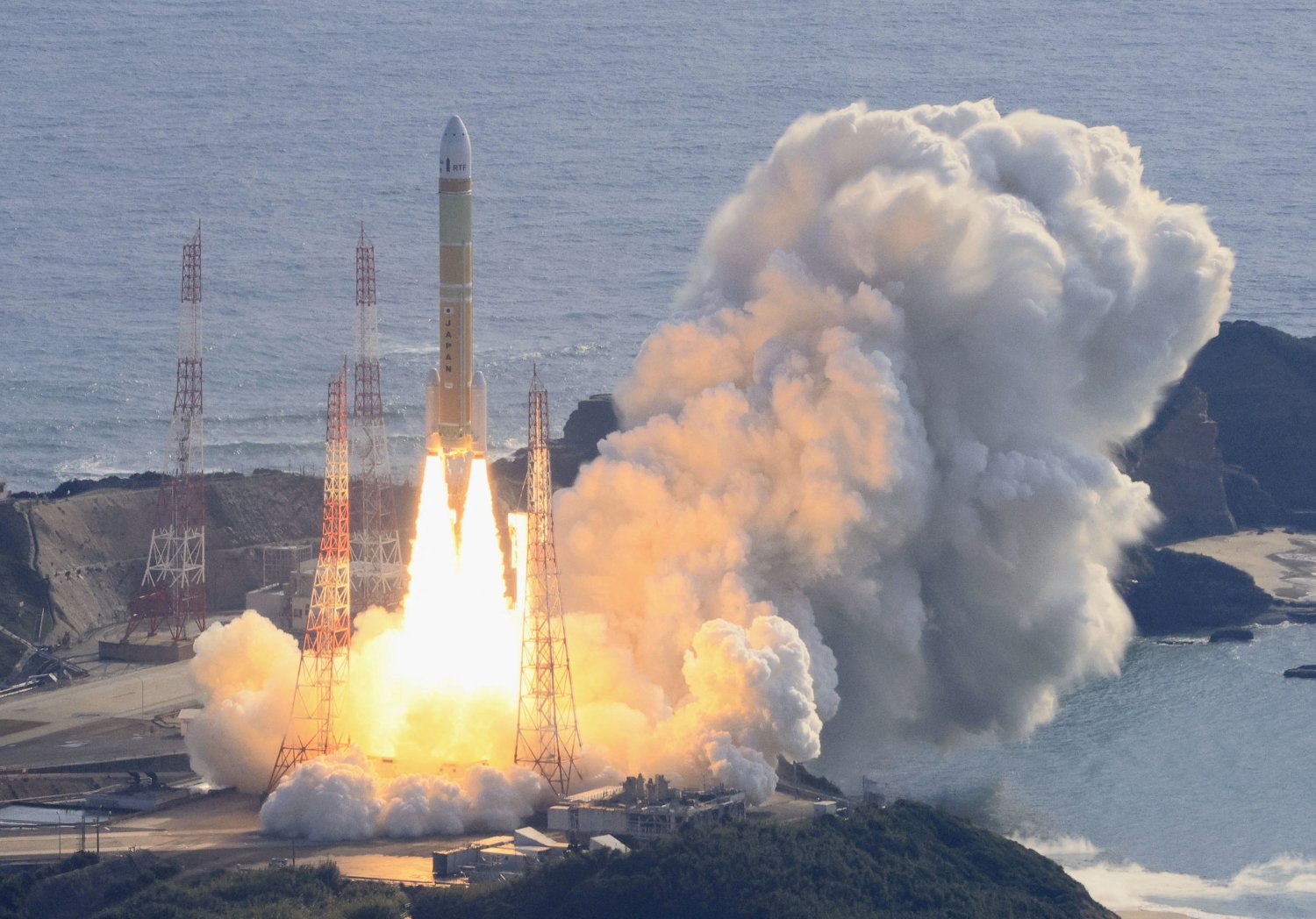Japan’s space agency is celebrating the successful launch of its new flagship rocket, marking the third attempt after years of delays and two previous failures.
The next-generation H3 rocket, seen as a potential rival to SpaceX’s Falcon 9, holds promises of delivering cargo to Moon bases in the future. Hiroshi Yamakawa, president of the Japanese Aerospace Exploration Agency (JAXA), expressed immense joy and relief, stating, “I’ve been in the space industry for a long time, but I’ve never felt so happy before, and I’ve never felt so relieved.”
The launch, which occurred at 9:22 am (0022 GMT) from the Tanegashima Space Center in southwestern Japan, was met with cheers and applause at the JAXA control center as the live stream confirmed the successful ignition of the H3’s engines, indicating its entry into orbit.
Developed collaboratively by JAXA and Mitsubishi Heavy Industries, the H3 succeeds the H-IIA launch system introduced in 2001. Designed for “high flexibility, high reliability, and high cost performance,” the H3 aims to maintain Japan’s independent access to space.
Unlike SpaceX’s reusable Falcon 9, the H3 is expendable, but its unique technology presents a significant milestone in rocket development. Michele Trenti, director of the Melbourne Space Laboratory at the University of Melbourne, highlighted the H3’s potential cost-effectiveness and its ability to facilitate solar system exploration.
The journey to this successful launch was fraught with challenges. Previous attempts in February 2023 and March last year were hampered by technical issues and weather conditions. However, Saturday’s launch saw the rocket carrying two small satellites, one intended for disaster prevention through imaging and the other equipped with sensors for monitoring ground-based factory operations.
The successful launch contributes to JAXA’s reputation, especially after recent setbacks, including failures with the Epsilon-6 solid-fuel rocket. Despite these challenges, Japan’s space program continues to strive for excellence, with ambitions for future space exploration missions, propelled by the need for more powerful launch vehicles like the H3, according to experts.


